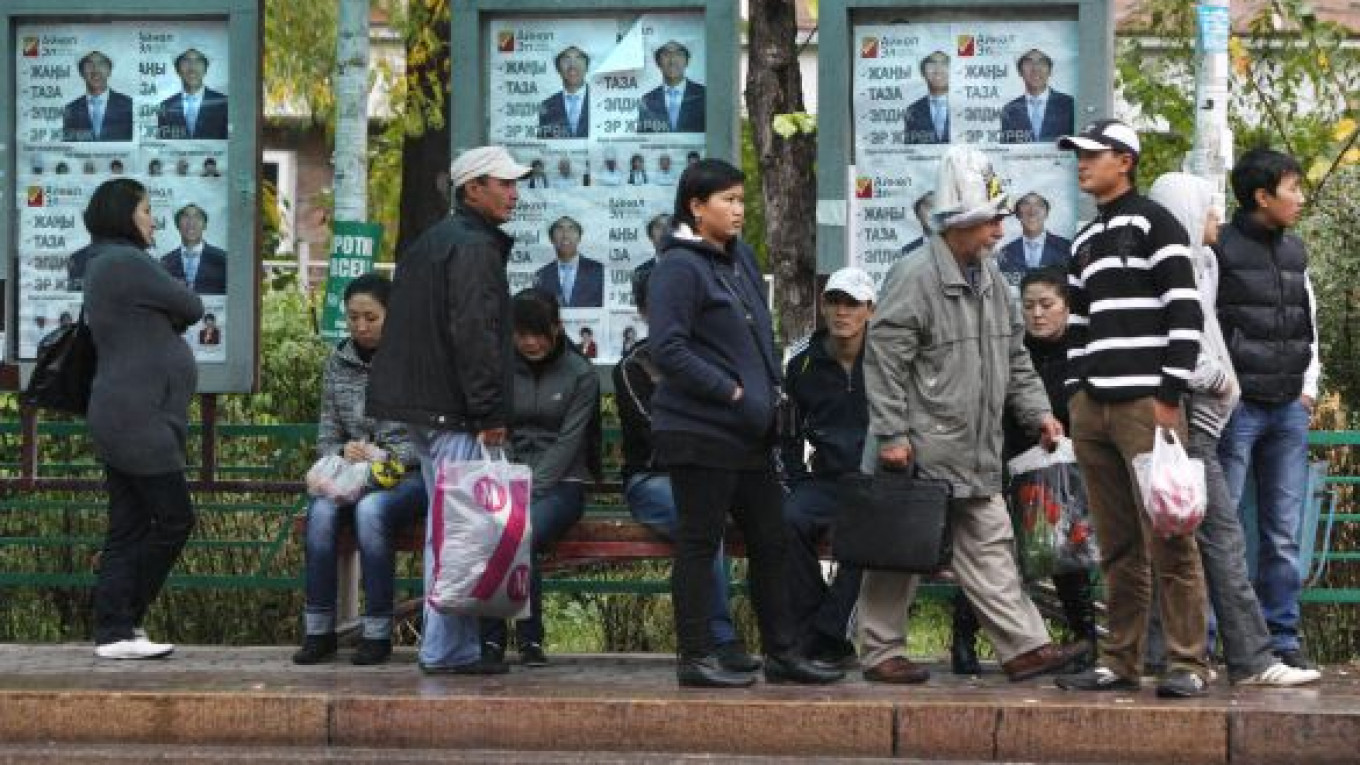BISHKEK, Kyrgyzstan — Kyrgyzstan holds an election on Sunday that interim leaders hope will help unite the country but opponents fear could trigger more violence and leave the south vulnerable to ethnic extremists and militant Islamists.
Sunday's election is intended to create Central Asia's first parliamentary democracy, a goal backed by the United States but ridiculed by Russia, in which the prime minister will have more power than the president.
Interim leaders want the vote to empower a prime minister to knit together a country riddled by political and ethnic divisions, which erupted into clashes between ethnic Kyrgyz and Uzbeks killing 400 people and making thousands homeless in June.
"The situation is highly explosive — powerful nationalist forces in the Kyrgyz society and establishment spare no effort to hold Uzbeks responsible for June's bloodshed, which sparks strong anger among the latter," said Alexander Knyazev, senior researcher at the Moscow Institute of Oriental Studies. "The conflict has not been resolved. It has become latent."
Residents in the capital, Bishkek, echoed those concerns.
"I fear there could be clashes, because the current establishment lacks stability," said Zhenish Orozbayev, an 18-year-old student. "I feel that after the election the parties that lose may try to stage rallies. The situation in the south is shaky, and an ethnic conflict could be easily incited."
Analysts say trouble may come from some highly placed officials who secretly fomented or supported the violence.
"If certain people know they will lose their high-ranking posts after the election, then it's in their interest to destabilize the situation," said Adil Mukashev, an independent expert on terrorism issues based in Almaty, Kazakhstan. "They could take steps to remain in power or create chaos."
Kyrgyzstan's electorate of some 2.8 million faces a hard puzzle, with 29 political parties battling over 120 parliament seats. Analysts say only six parties have a realistic chance.
Voters will be handed 72-centimeter-long ballot papers naming the parties, whose programs are often similar. All voting will be for party lists, not individual candidates.
Analysts say voters will make their choices based on well-known personalities among party leaders rather than the parties.
Several rival parties are led by senior officials from within the interim government that assumed control after the April 7 revolt that toppled President Kurmanbek Bakiyev.
Omurbek Tekebayev was the architect of the constitutional reforms that made the election possible. Among his main rivals is Almazbek Atambayev, interim President Roza Otunbayeva's deputy in the immediate aftermath of the April revolt.
Atambayev has traveled to Moscow and most recently met with Prime Minister Vladimir Putin in September.
But Russia may be backing another candidate: Felix Kulov, once a prime minister under Bakiyev. Kulov last month visited President Dmitry Medvedev at his residence near Moscow.
Large billboards in Bishkek feature a stern-looking Kulov posing next to his election slogan: "The iron shield of the law."
In a clear hint at his ties with Moscow, some billboards feature the emblem of Putin's ruling United Russia party next to the emblem of Kulov's party.
His pledge to reverse the constitutional reforms chimes with Medvedev's warnings that a parliamentary democracy would create factionalism and open the door for a power grab by extremist groups.
A Message from The Moscow Times:
Dear readers,
We are facing unprecedented challenges. Russia's Prosecutor General's Office has designated The Moscow Times as an "undesirable" organization, criminalizing our work and putting our staff at risk of prosecution. This follows our earlier unjust labeling as a "foreign agent."
These actions are direct attempts to silence independent journalism in Russia. The authorities claim our work "discredits the decisions of the Russian leadership." We see things differently: we strive to provide accurate, unbiased reporting on Russia.
We, the journalists of The Moscow Times, refuse to be silenced. But to continue our work, we need your help.
Your support, no matter how small, makes a world of difference. If you can, please support us monthly starting from just $2. It's quick to set up, and every contribution makes a significant impact.
By supporting The Moscow Times, you're defending open, independent journalism in the face of repression. Thank you for standing with us.
Remind me later.






